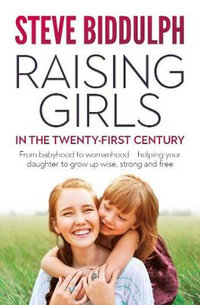Based on twenty-five years of fieldwork, Rural Women's Sexuality, Reproductive Health, and Illiteracy: A Critical Perspective on Development examines rural women's behaviors towards health in several developing countries. These women are confronted with many factors: gender inequalities, violence from partners, and lack of economic independence. The book also gives insight into the general weakness of the health systems in place and questions the progress of numerous international conferences ICPD (International Conference on Population and Development) and MDGs (Millennium Development Goals) along with WHO (The World Health Organization) Frame Work for Action, UNFPA (United Nations Population Fund) and CEDAW (Committee on the Elimination of Discrimination Against Women) all supporting women's empowerment as related to violence, education, and reproductive health.
Chapters provide numerous concrete examples and vignettes describing constraints on women in a variety of countries related to their intimate lives and their struggle between traditional and modern medicine. Widely practiced clandestine sex work is a challenge to HIV/AIDS programs. The book examines the women who choose clandestine sex work and their clients' sexual behavior and attitudes toward prostitution and HIV prevention. It also explores the negotiations between promiscuous, migratory men, and the ties of sexuality and fertility that women use to tie them to a male partner. The book argues for effective delivery of healthcare programs accompanied by multi-lateral responses from the civil society, governments, donors and agencies. Rural Women's Sexuality, Reproductive Health, and Illiteracy is a useful resource scholars, as well as consultants and staff working in development agencies and public health.
Industry Reviews
Anthropologist Maynard-Tucker has over 25 years of experience as a consultant in health and women's welfare development projects, both large and small, in many countries of Asia, Africa, and Latin America. Her descriptions of donor and government incompetence, corruption, smugness, obliviousness to local conditions, and poor project design are vivid and compelling. Her portrayal of the nightmarish 1991 conditions in Haiti caused by the attitudes of the military dictatorship as well as the cynicism and callousness of USAID officials is particularly shocking and well explained. . . .Summing Up: Recommended. Graduate students, faculty, professionals. * CHOICE *
The book is no less an anthropological study of the lives of women in rural communities than it is of the practices of development institutions. . . .In her quality of care work, [Maynard-Tucker] documents the systemic mistreatment of women in health systems because they are non-literate and come from rural areas. * International Feminist Journal of Politics *
This is a readable account of a fascinating career in international health and family planning. Part memoir and part analysis, Women's Sexuality gives us the big picture of women's situation in poor and marginalized communities. The author takes a positive attitude in the face of difficulties that might overwhelm others, provoking the reader to ask, 'What would I do in such situations?' The author challenges the complacent and the corrupt to do something about female illiteracy and the 'health illiteracy' resulting from it. The specter of HIV/AIDS looms large, as the reader gets a close-up view of women's struggles for survival and coping strategies that include 'survival sex.' -- Suzanne Hanchett, Planning Alternatives for Change, LLC
This book offers a superb illustration of how anthropology and qualitative analysis may significantly enhance population and reproductive health policies. -- John May, Population Reference Bureau
At last, in one volume, Maynard-Tucker brings together her vast and valuable insights as one of the-perhaps the-most distinguished career applied anthropologists. She documents firsthand the common and persistent barriers to achieving rural women's health throughout the world, as well as their survival strategies in the face of globalization-many of which entail unfortunate health compromises. A superb ethnographer, Maynard-Tucker practices what she preaches in the most challenging of environments and tells the authentic tales, to the benefit of us all. -- Kathy Oths, University of Alabama

























